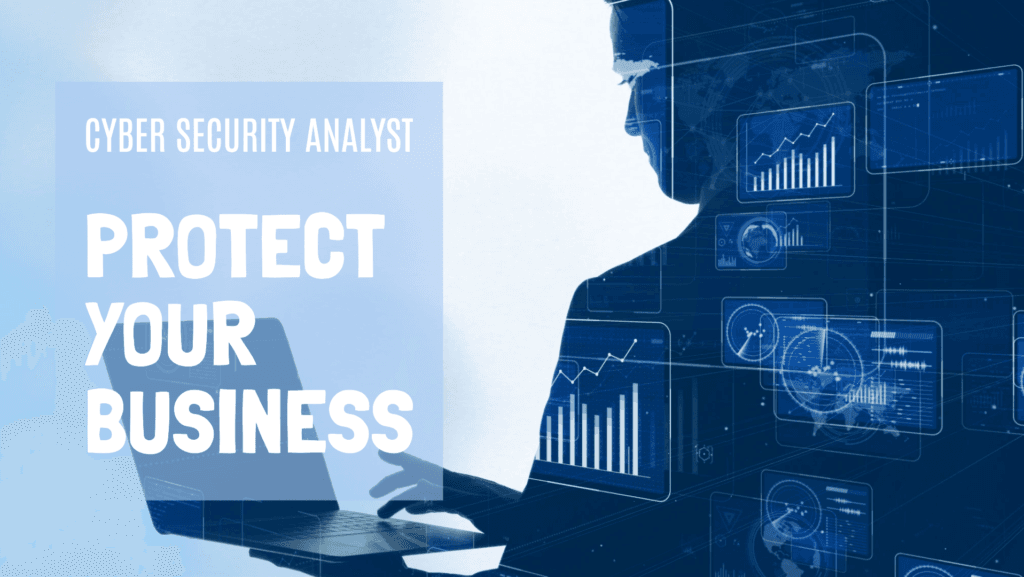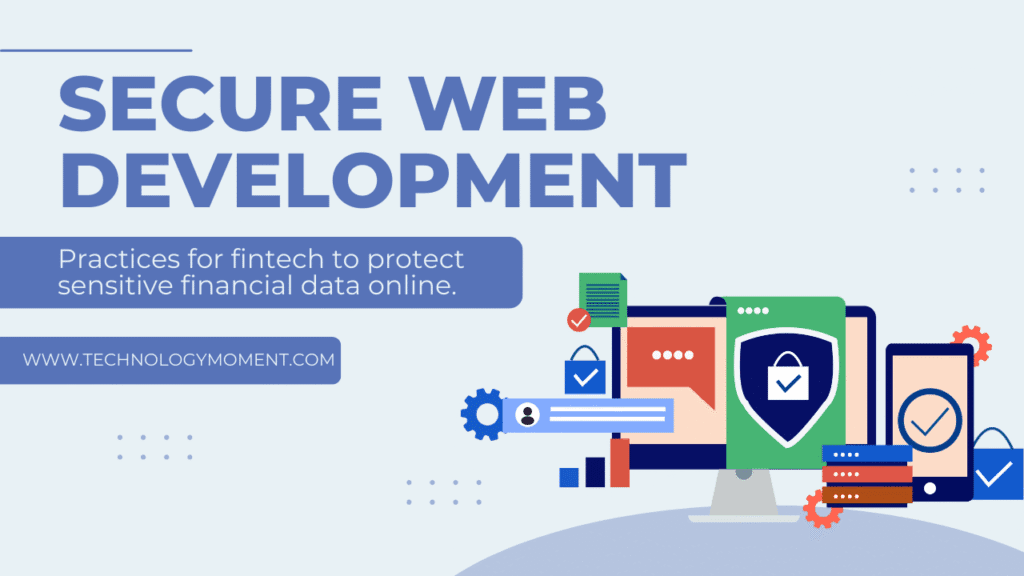Technology Moment is your go-to destination for insights on the latest tech trends, certifications, and career advancements. If you’re looking to break into the field or advance your skills, the CompTIA Security+ certification stands out as a powerful starting point. This blog explores why Security+ is the best choice for enhancing your cybersecurity career, covering its benefits, skills you’ll gain, and how it can open doors to exciting job opportunities. Stay informed and empowered with Technology Moment!
In today’s digital age, cybersecurity threats are more prevalent than ever, making the demand for skilled security professionals skyrocket. Whether you’re just starting out or looking to strengthen your career in cybersecurity, earning the CompTIA Security+ certification can be a game-changer.
It covers core concepts like threat management, risk assessment, and network security, making it an ideal choice for both beginners and intermediate professionals seeking a career boost.
Why is this certification so valuable? Cybersecurity has become a critical aspect for businesses, governments, and individuals alike. From data breaches to ransomware attacks, the threats are evolving, and organizations are actively seeking certified professionals who can safeguard their digital assets. CompTIA Security+ not only equips you with practical skills but also proves your competency to potential employers.
This blog will guide you through everything you need to know about the CompTIA Security+ certification — its benefits, exam details, preparation strategies, and how it can enhance your career in the cybersecurity industry. Whether you’re aiming for a career shift or want to level up your current role, this certification could be your key to success.
What is CompTIA Security+?
It serves as a benchmark for individuals starting or advancing in the cybersecurity field, emphasizing essential knowledge and practical abilities needed to protect systems and networks from security threats.
Overview of the Certification
The CompTIA Security+ (SY0-701) is a foundational cybersecurity certification offered by CompTIA (Computing Technology Industry Association). It covers core security principles, including threat identification, risk management, cryptography, and network security controls. This certification is often seen as the first step for those looking to build a career in cybersecurity, providing a solid understanding of security concepts without requiring extensive prior experience.
Key Features of CompTIA Security+:
- Vendor-Neutral: It focuses on general cybersecurity principles applicable across multiple technologies and platforms, making it versatile for various IT environments.
- Globally Recognized: The certification is accepted worldwide, making it a strong credential for job opportunities across different countries.
- Hands-On Focus: The exam includes performance-based questions that test practical, real-world skills.
Importance in the Cybersecurity Industry
The CompTIA Security+ plays a crucial role in the cybersecurity industry by setting a standard for foundational cybersecurity knowledge. Here’s why it’s important:
- Validates Core Skills: It confirms the candidate’s ability to assess security risks, implement protective measures, and respond to security incidents.
- Meets Industry Standards: The certification aligns with frameworks such as ISO 17024 and is often a requirement for positions compliant with the U.S. Department of Defense (DoD 8570) directive.
- Gateway to Cybersecurity Careers: Holding a Security+ certification can help secure roles such as security analyst, systems administrator, and network security specialist.
- Focus on Practical Knowledge: The inclusion of performance-based questions ensures certified professionals can apply their skills in real-world scenarios.
Table of Contents
Why Choose CompTIA Security+?
Choosing the CompTIA Security+ certification can be a game-changer for anyone aspiring to build a strong foundation in cybersecurity. Here’s why this credential stands out among other industry certifications:
1. Vendor-Neutral Certification
One of the biggest advantages of CompTIA Security+ is its vendor-neutral nature. Unlike certifications tied to specific technologies or platforms, Security+ provides knowledge and skills applicable across multiple systems, networks, and security tools. This flexibility allows certified professionals to work in various IT environments without being limited to a single vendor’s ecosystem.
Why it matters:
- Broadens career opportunities across different sectors.
- Ensures a well-rounded understanding of cybersecurity concepts.
2. Industry Recognition and Credibility
CompTIA Security+ is globally recognized and respected within the IT industry. It is widely accepted as a baseline certification for cybersecurity roles, making it a valuable credential for both entry-level and experienced professionals.
Key highlights:
- Accredited by ANSI and compliant with ISO 17024 standards.
- Meets the requirements for DoD 8570 compliance, making it essential for government roles.
Why it matters:
- Adds credibility to your cybersecurity expertise.
- Meets international security standards for professional certifications.
3. Foundational Cybersecurity Skills
The Security+ certification focuses on core cybersecurity concepts, ensuring you build a solid foundation in the field. Topics covered include:
- Threat Identification and Mitigation
- Risk Management
- Cryptography Basics
- Network Security and Controls
Why it matters:
- Prepares you for real-world security challenges.
- Covers essential topics needed for further advanced certifications.
4. No Prerequisites Required
Unlike many other certifications, CompTIA Security+ does not require prior certifications or formal cybersecurity education. It’s designed for individuals with basic IT knowledge, making it an ideal starting point for newcomers to the field.
Why it matters:
- Accessible to career changers and beginners.
- A great starting point for building a cybersecurity career.
5. Career Advancement and Job Market Demand
The Security+ certification is highly valued by employers, often listed as a requirement for cybersecurity roles such as:
- Security Analyst
- Network Administrator
- Systems Security Specialist
Why it matters:
- Boosts your resume and marketability.
- Opens doors to various high-paying cybersecurity positions.
6. Pathway to Advanced Certifications
Security+ serves as a stepping stone for pursuing more advanced certifications such as:
- CompTIA CySA+ (Cybersecurity Analyst)
- CompTIA CASP+ (Advanced Security Practitioner)
- CISSP (Certified Information Systems Security Professional)
Why it matters:
- Builds a progressive career path in cybersecurity.
- Strengthens your expertise for specialized security roles.
Key Benefits of CompTIA Security+ Certification
It offers numerous advantages that can significantly impact your career, whether you’re just starting out or looking to enhance your skills. Here are the key benefits that make CompTIA Security+ a valuable certification for cybersecurity professionals:
1. Entry-Level to Intermediate Skill Coverage
CompTIA Security+ is designed to cover a wide range of cybersecurity topics at both an entry-level and intermediate level. While it doesn’t require advanced expertise, it provides a comprehensive understanding of critical cybersecurity concepts like network security, threat management, and encryption. This broad scope makes it suitable for beginners but also valuable for individuals with some experience in the field.
For those new to cybersecurity, the Security+ certification acts as a stepping stone, offering fundamental knowledge that can be built upon with more advanced certifications later in your career. It ensures you are well-versed in topics like risk management, identity and access management, and security operations, which are all essential for any cybersecurity professional.
2. Globally Recognized Credential
One of the major advantages of obtaining the CompTIA Security+ certification is its global recognition. It is accepted by organizations around the world, making it an excellent choice if you’re looking to work in different countries or with international companies. As cyber threats are a global concern, employers everywhere recognize the value of having professionals who are trained in cybersecurity fundamentals.
This recognition isn’t just a nod of approval from a single company or country; it’s a standard in the industry. Whether you’re in the U.S., Europe, Asia, or anywhere else, the Security+ certification is a respected symbol of cybersecurity knowledge.
3. Compliance with Industry Standards (e.g., DoD 8570)
For those interested in government positions or roles related to government contracts, CompTIA Security+ is particularly valuable. In the United States, the Department of Defense (DoD) requires personnel to have certain cybersecurity certifications for access to classified systems and sensitive data. DoD Directive 8570 specifically mandates that personnel in cybersecurity roles hold certifications like Security+ to comply with federal regulations.
Beyond the DoD, many industries and sectors, including finance and healthcare, require compliance with regulatory standards for cybersecurity. The Security+ certification not only ensures you have the necessary skills but also makes you eligible for positions that require compliance with these standards.
4. Enhanced Career Opportunities
Holding a CompTIA Security+ certification can open up a wide array of job opportunities in cybersecurity. This credential is often a minimum requirement for many entry-level positions in the industry, such as:
- Security Administrator
- Network Security Engineer
- Systems Administrator
- IT Security Consultant
- Risk Analyst
Employers highly value candidates with this certification because it confirms they have the basic knowledge to handle security tasks effectively. Moreover, Security+ holders are often seen as more reliable and qualified for handling sensitive information, which is crucial in any security-related job.
5. Increased Earning Potential
Earning a CompTIA Security+ certification can boost your salary prospects. According to several salary surveys, professionals with a Security+ certification often earn higher salaries compared to their non-certified counterparts. While salaries can vary depending on experience, location, and the specific role, a certified cybersecurity professional can expect a competitive salary.
In some industries, especially those that require cybersecurity expertise for compliance or regulatory reasons, employers may offer higher salaries to attract certified professionals. The certification not only demonstrates your expertise but also shows employers that you’re serious about your career and committed to staying current with cybersecurity best practices.
6. Foundation for Advanced Certifications
Once you earn your Security+ certification, you can pursue more specialized credentials like Certified Information Systems Security Professional (CISSP), Certified Ethical Hacker (CEH), or Certified Cloud Security Professional (CCSP). These certifications build on the concepts you learned during the Security+ preparation, helping you advance in your career.
Many professionals use Security+ as a stepping stone before diving into more complex areas of cybersecurity, such as penetration testing, incident response, or network defense. By starting with Security+, you gain the knowledge needed to progress into specialized roles in the cybersecurity industry.
Skills You Gain with CompTIA Security+
When you earn the CompTIA Security+ certification, you gain a comprehensive set of foundational skills crucial for navigating and securing digital environments. This certification ensures that you are well-prepared to handle various cybersecurity challenges, from identifying threats to implementing security measures. Let’s break down the key skills you’ll acquire:
1. Threat Detection and Management
One of the primary skills that the CompTIA Security+ certification focuses on is the ability to detect and manage threats effectively. You’ll learn how to:
- Identify common cyber threats: This includes malware, ransomware, phishing attacks, and other malicious activities that can compromise systems.
- Respond to incidents: You’ll be trained in how to analyze security breaches and develop appropriate response strategies to minimize damage and recover swiftly.
- Monitor networks and systems for potential threats: With the tools and techniques learned, you’ll be able to monitor traffic and data to identify vulnerabilities before they’re exploited.
Threat detection is crucial in today’s ever-evolving cybersecurity landscape, where new threats emerge regularly. By mastering these skills, you’ll become an essential asset to any organization seeking to safeguard their infrastructure.
2. Risk Management
Risk management is a cornerstone of cybersecurity, and the CompTIA Security+ certification provides you with the knowledge to assess and mitigate potential risks within an organization. You’ll learn to:
- Conduct risk assessments: This involves evaluating assets, identifying vulnerabilities, and understanding the likelihood of potential threats to prioritize actions.
- Implement risk management strategies: You’ll be trained in risk control measures, such as creating backups, using firewalls, and configuring access controls to minimize exposure to cyber threats.
- Establish disaster recovery plans: In case of a security breach or data loss, you’ll be able to develop and implement plans that ensure business continuity.
Risk management is essential for organizations of all sizes, and these skills will help you contribute to maintaining operational stability while preventing major security breaches.
3. Cryptography Basics
Cryptography is the science of securing communication and data through encryption and decryption processes. With CompTIA Security+, you’ll gain foundational knowledge in cryptography, which is vital for ensuring data integrity and privacy. The skills you’ll acquire include:
- Understanding encryption algorithms: You’ll learn how different encryption algorithms, like AES and RSA, work to protect data during storage and transmission.
- Key management: Learn the importance of proper key management to ensure that encryption keys are kept secure and are never compromised.
- Digital certificates: You’ll understand how digital certificates and public key infrastructures (PKI) work to authenticate users and secure web communications.
Cryptography is at the heart of most cybersecurity practices today, and understanding it is a must for anyone looking to protect sensitive data and online communications.
4. Network Security and Controls
Another significant area of focus in CompTIA Security+ is network security, a critical element of any organization’s defense against cyberattacks. The certification prepares you to:
- Secure network devices: You’ll learn how to configure routers, switches, and firewalls to prevent unauthorized access and block malicious traffic.
- Implement VPNs and encryption protocols: You’ll gain knowledge in securing remote access and internal communications through virtual private networks (VPNs) and secure protocols like SSL/TLS.
- Apply security controls: The course covers various security controls (e.g., access control lists, intrusion detection systems) that help in preventing attacks and monitoring suspicious activities across networks.
Network security is essential in protecting an organization’s infrastructure, and this skill set will equip you to safeguard an organization’s communication channels effectively.
5. Identity and Access Management (IAM)
Managing user identities and controlling access to systems and data is crucial in preventing unauthorized breaches. With CompTIA Security+, you’ll learn how to:
- Control access to systems: You’ll gain expertise in setting up access controls, including multifactor authentication (MFA) and role-based access control (RBAC), to ensure only authorized users can access critical resources.
- Implement strong authentication methods: You’ll understand how technologies like biometrics, smart cards, and tokens are used to verify the identity of users.
- Monitor and manage accounts: You’ll be taught how to enforce password policies, handle user account provisioning, and manage permissions and access rights.
IAM is a fundamental part of cybersecurity, and this skill is crucial to prevent unauthorized access and ensure data privacy.
6. Cloud Security
As businesses increasingly move to the cloud, understanding how to secure cloud-based environments is vital.
- Identify cloud security risks: Learn how to assess risks associated with cloud computing, such as data loss, data breaches, and improper configurations.
- Secure cloud resources: Understand the various security measures that can be applied to protect cloud data, such as encryption, secure cloud access, and virtual private cloud (VPC) setups.
- Compliance requirements: Learn about regulatory compliance standards, such as HIPAA, GDPR, and SOC 2, that apply to cloud environments.
Cloud security knowledge is becoming increasingly important as more organizations move their data and services to the cloud, and this skill will position you as a valuable asset in securing modern IT infrastructures.
7. Security Operations and Monitoring
Effective security operations are crucial to maintain a secure digital environment. In CompTIA Security+, you will learn:
- Security monitoring tools: Gain hands-on experience with tools that detect security threats and monitor systems and networks for suspicious activity.
- Incident handling and response: You’ll learn how to handle security incidents, including how to contain breaches, perform forensics analysis, and restore systems after an attack.
- Reporting and documentation: You’ll understand how to document security incidents and generate reports to keep stakeholders informed.
These skills will help you actively manage and monitor the security posture of an organization, allowing you to respond to threats proactively.
CompTIA Security+ Exam Details
The CompTIA Security+ exam is a key step for anyone looking to earn this certification and dive into the world of cybersecurity. Understanding the structure, types of questions, and the passing criteria can significantly help you prepare and approach the exam confidently. Let’s break down the exam details in a comprehensive way.
Exam Structure and Duration
The CompTIA Security+ exam (SY0-601) consists of multiple-choice questions, performance-based questions, and simulations to evaluate both theoretical knowledge and practical skills. The exam focuses on the core principles of network security, threat management, cryptography, and risk management.
- Number of Questions: You will be asked between 90 and 100 questions.
- Duration: 90 minutes
- Passing Score: The passing score for the Security+ exam is 750 out of 900.
- Question Format: The exam includes different types of questions such as:
- Multiple-choice questions (MCQs): These questions will have one correct answer from a set of options.
- Performance-based questions (PBQs): These require you to solve practical problems or scenarios in a simulated environment, testing your hands-on ability to address real-world security issues.
- Drag-and-drop questions: These questions ask you to match terms, order items, or select the correct solution from a set of options, which may appear as a drag-and-drop interface.
Types of Questions
Understanding the types of questions on the exam can guide your study approach:
- Multiple-choice questions: These are traditional questions with four options, where you need to select the most appropriate answer based on your knowledge of cybersecurity principles. Questions may cover topics like network security, threats and vulnerabilities, identity management, and risk management.
- Performance-based questions (PBQs): These questions assess your ability to apply practical knowledge. You may be given a scenario and asked to identify issues, suggest solutions, or configure security settings in a simulated environment. These questions require hands-on expertise and problem-solving skills, so practicing through simulations or labs can be incredibly beneficial.
- Drag-and-drop questions: This is a more interactive type of question, often designed to test your ability to categorize or sequence information. For example, you may be asked to organize security protocols in a logical order or match various security tools with their correct usage. Practice with study tools that offer this type of question to prepare effectively.
Passing Criteria
To pass the CompTIA Security+ exam, you must achieve a score of 750 out of 900. The scoring system is designed to assess your understanding of various security concepts, and the questions are weighted according to their importance. Therefore, while it’s important to perform well across all domains, some sections may carry more weight than others. The certification is awarded when you meet the minimum passing score, which indicates you have a basic level of competency to handle security tasks.
What to Expect on Exam Day
When you schedule your exam, you can choose between two options:
- On-site exam: If you prefer a traditional exam setting, you can go to an authorized Pearson VUE test center. Ensure you arrive early with proper ID to avoid any delays.
- Online proctored exam: For convenience, CompTIA offers the option of taking the exam from your home or office. This is done through an online proctoring service. Ensure you meet the system requirements (like a webcam and a stable internet connection) and are in a quiet, private environment to avoid any distractions.
Preparation Tips for the Exam
- Familiarize yourself with the exam objectives: Review the official CompTIA Security+ exam objectives to ensure you know the material that will be covered.
- Take practice exams: Taking practice exams helps you understand the exam format, manage time effectively, and identify areas that need improvement.
- Hands-on practice: Work on performance-based questions by setting up lab environments or using virtual machines to practice cybersecurity tasks.
- Use study resources: Leverage books, video courses, and online tutorials that specifically align with the SY0-601 exam objectives.
- Join study groups: Engaging in online communities or local study groups can help you exchange knowledge and get advice from others who have already taken the exam.
Eligibility and Prerequisites for CompTIA Security+ Certification
CompTIA Security+ is designed for professionals who are looking to build a solid foundation in cybersecurity. However, understanding the eligibility and prerequisites is important before you embark on preparing for the exam. Here’s a detailed explanation of the eligibility criteria and prerequisites:
Who Can Take the Exam?
The CompTIA Security+ certification is open to anyone who wishes to enhance their cybersecurity knowledge and skills. There is no strict age limit or geographic restriction for taking the exam. Whether you’re a student, a professional looking to switch to cybersecurity, or someone already working in IT and networking, the exam is available to all.
While there are no mandatory prerequisites set by CompTIA, it is important to note that the certification is targeted at individuals with some background in IT, especially in networking and system administration. It helps if you have basic knowledge of how networks work, what threats exist, and how to secure devices and data.
Recommended Experience
Although CompTIA Security+ does not have formal prerequisites, CompTIA recommends having two years of work experience in IT administration or a related field before attempting the exam. This recommendation ensures that you have a foundational understanding of IT concepts, which will help you better grasp the more advanced cybersecurity topics covered in the exam.
If you do not have the recommended two years of work experience, you can still pursue the certification. However, it may be helpful to gain some hands-on experience or study relevant foundational topics such as:
- Networking Fundamentals: Understanding how networks operate, including network protocols, devices, and network management.
- Basic IT Security Knowledge: Familiarity with security principles, such as encryption, firewall management, and access controls.
- IT Infrastructure Knowledge: Knowledge of hardware, software, and basic operating system functions.
If you’re new to IT or cybersecurity, it may be helpful to take foundational courses in IT networking, like the CompTIA Network+ certification, which can serve as a stepping stone to Security+.
Exam Prerequisites
One of the great things about CompTIA Security+ is that there are no specific technical prerequisites required to take the exam itself. That said, it’s important to prepare adequately. Having a basic understanding of networking, security concepts, and IT fundamentals is crucial for success.
If you’re considering self-studying, you should familiarize yourself with key topics such as:
- Threats, Vulnerabilities, and Attacks
- Network Security
- Identity and Access Management
- Risk Management
- Cryptography
Additionally, you can enhance your knowledge through various study resources, including books, practice exams, and online courses.
Can Beginners Take the Exam?
Yes, beginners can take the CompTIA Security+ exam if they feel confident in their knowledge and skills. While prior experience in IT or networking is recommended, it is not mandatory. There are many resources available that can help newcomers learn and prepare for the exam, including training programs that teach the basics of cybersecurity.
For absolute beginners, it might be beneficial to go through preparatory courses or materials to ensure that you grasp the essential concepts covered by the exam.
How to Prepare for the CompTIA Security+ Exam
Preparing for the CompTIA Security+ exam requires a strategic approach and dedication to mastering both the theoretical concepts and practical skills essential for the exam. While the certification is designed for individuals who are beginning their careers in cybersecurity, the exam can be challenging if you’re not adequately prepared. Below are detailed steps and resources to help you get ready for the exam and increase your chances of success.

1. Study Materials and Resources
The first step in preparing for the CompTIA Security+ exam is gathering the right study materials. The quality of the materials you use will determine how well you understand the exam objectives.
- CompTIA Official Study Guide: CompTIA offers an official study guide that covers all the exam domains in detail. This guide is often recommended because it follows the structure of the exam and provides practice questions to help test your knowledge.
- Books and eBooks: Several textbooks are available to help you with your exam prep. One popular resource is “CompTIA Security+ All-in-One Exam Guide” by Mike Meyers, which provides comprehensive coverage of the exam objectives. You can also find eBooks available for download or purchase, which may be more convenient for on-the-go studying.
- Online Courses: Many online platforms offer CompTIA Security+ training courses, which can be helpful for structured learning. Websites like Udemy, LinkedIn Learning, and Pluralsight offer video tutorials, lessons, and quizzes to guide you through the material. These courses are designed to follow the exam objectives and offer a step-by-step approach to mastering the content.
2. Practice Exams
Once you’ve gone through the study materials, taking practice exams is crucial. These simulate the actual exam environment, helping you become familiar with the types of questions you’ll face and the format of the exam.
- Official Practice Tests: CompTIA provides official practice exams, which are designed to give you an accurate representation of the questions on the actual exam. They’re available for purchase and often come with detailed explanations to help you understand why a particular answer is correct.
- Third-Party Practice Tests: Several third-party websites offer practice exams as well, including ExamCompass and TestOut. These tests can help you identify areas where you may need further review. Be sure to review the explanations for both correct and incorrect answers to solidify your understanding.
3. Online and Offline Training Courses
Training courses, whether online or offline, provide structure and a more guided approach to preparing for the CompTIA Security+ exam.
- Online Boot Camps: Some training providers offer online boot camps that can prepare you for the exam in a short period. These boot camps typically last between 5-10 days and are intensive, with instructors who help guide you through the material.
- In-Class Training: If you prefer a classroom setting, several training centers offer in-person CompTIA Security+ courses. These courses are instructor-led and can be an excellent choice for individuals who benefit from face-to-face interaction.
4. Exam Objectives and Domains
Before you start preparing, it’s crucial to understand the exam objectives. The CompTIA Security+ SY0-601 exam is based on six domains of knowledge:
- Threats, Attacks, and Vulnerabilities: This domain focuses on identifying and understanding various types of cybersecurity threats, attacks, and vulnerabilities.
- Architecture and Design: It covers secure network architecture and best practices in designing secure systems.
- Implementation: This domain is all about implementing security solutions, including firewalls, VPNs, and access control measures.
- Operations and Incident Response: Focuses on managing security incidents and understanding the roles of cybersecurity personnel during incidents.
- Governance, Risk, and Compliance: Deals with policies and procedures that manage risk, compliance, and overall cybersecurity governance.
- Cryptography and Public Key Infrastructure (PKI): Covers encryption techniques, cryptographic protocols, and digital certificates.
Make sure you study each domain carefully and understand the key concepts within them.
5. Time Management
Time management is a critical aspect of preparing for the CompTIA Security+ exam. The exam consists of up to 90 multiple-choice and performance-based questions, which you must complete within 90 minutes. This means you need to pace yourself and avoid spending too much time on any one question during the actual exam.
To help manage your time effectively during your studies:
- Set Realistic Study Goals: Break down the exam objectives into manageable chunks and set daily or weekly goals. This helps you stay on track and ensures you cover all domains before the exam.
- Create a Study Schedule: Plan your study time around your personal and professional commitments. Be consistent, and avoid cramming all the material in the last few days before the exam.
6. Hands-On Practice
Cybersecurity is a practical field, so it’s important to supplement your theoretical knowledge with hands-on experience. Many of the exam topics involve practical skills that can’t be fully understood without using them in real-world situations.
- Labs and Simulations: Many online courses provide virtual labs or simulations where you can practice configuring firewalls, setting up VPNs, and detecting threats. These labs are often an integral part of exam preparation and are an excellent way to reinforce what you’ve learned.
- Use Virtual Machines: Set up virtual environments on your computer using software like VMware or VirtualBox. This allows you to experiment with different security tools and practices in a safe, controlled environment.
- Join a Security Community: Join online forums, study groups, or communities where you can collaborate with others who are also preparing for the exam. Websites like Reddit, TechExams, or Discord have dedicated CompTIA Security+ groups where you can ask questions, share resources, and participate in discussions.
7. Join Study Groups
Collaborating with peers can boost your learning experience. Study groups help you exchange knowledge, tackle difficult topics, and provide mutual support. Here are a few tips for using study groups effectively:
- Online Forums and Communities: Sites like Reddit and TechExams have dedicated forums for CompTIA Security+ certification where members can discuss exam questions and share insights.
- Study Group Platforms: You can also find online study groups on platforms like Discord or Facebook Groups, where people share resources, study notes, and organize practice sessions.
8. Take Breaks and Stay Healthy
Long hours of study can lead to burnout, which can negatively impact your preparation. Also, maintain a healthy lifestyle by getting enough sleep, eating well, and exercising to keep your mind and body in optimal condition for learning.
Best Study Tips for Passing the Security+ Exam
Preparing for the CompTIA Security+ exam requires a strategic approach to ensure success. Since the certification covers a broad range of cybersecurity concepts, it’s essential to plan effectively. Here are some detailed and practical study tips to help you ace the Security+ exam:
1. Understand the Exam Objectives Thoroughly
The exam objectives outline all the domains, topics, and skills covered in the test. This document serves as your study roadmap, helping you focus on the essential areas such as:
- Threats, Attacks, and Vulnerabilities
- Risk Management
- Architecture and Design
- Cryptography and PKI
- Technologies and Tools
✅ Tip: Make a checklist and track your progress for each topic.
2. Use Official Study Materials
CompTIA offers official study resources, including:
- CompTIA Security+ Study Guide (SY0-601) – The official textbook for the exam.
- CompTIA CertMaster Practice – An interactive learning tool with quizzes and practice tests.
- Official CompTIA Security+ Practice Exams
✅ Tip: Stick to official resources as they align closely with the exam structure.
3. Take Practice Exams Regularly
Practice exams are essential for success. They help you:
- Familiarize yourself with the question format.
- Identify weak areas.
- Improve time management skills.
4. Join Study Groups and Forums
Being part of a study group can boost your preparation. Platforms like Reddit, Discord, and CompTIA’s official forums offer spaces where candidates share resources, discuss questions, and clarify doubts.
✅ Tip: Collaborating with peers can provide new insights and motivation.
5. Leverage Hands-On Labs and Simulations
Security+ involves practical knowledge of security tools and concepts. Use virtual labs and simulators to practice tasks like:
- Configuring firewalls and VPNs
- Identifying network vulnerabilities
- Performing basic penetration tests
✅ Tip: Platforms like CompTIA Labs, TryHackMe, and Cybrary offer hands-on training.
6. Develop a Consistent Study Schedule
- Allocate specific time slots for different topics.
- Include revision and mock tests in your schedule.
✅ Tip: Use tools like Trello or Notion for organizing your study schedule.
7. Focus on Weak Areas
Identify your weak areas early through practice tests and focus on improving them. For example:
- If you struggle with cryptography concepts, dedicate extra sessions to learning encryption algorithms and PKI.
✅ Tip: Keep refining your skills on challenging topics until you gain confidence.
8. Use Mnemonics and Visual Aids
Security+ involves memorizing a lot of technical terms and frameworks. Mnemonics and visual aids can simplify this process. For example:
- CIA Triad: Confidentiality, Integrity, Availability
- DLP (Data Loss Prevention) – Think “Don’t Let PII” escape.
✅ Tip: Flashcards and mind maps can be incredibly helpful.
9. Stay Updated with Industry Trends
- Reading cybersecurity blogs and news.
- Following experts on LinkedIn and Twitter.
✅ Tip: Familiarize yourself with current cybersecurity frameworks like NIST and ISO/IEC 27001.
10. Stay Positive and Manage Stress
Finally, exam success also depends on your mindset. Avoid cramming right before the exam day. Instead:
- Get enough rest.
- Stay hydrated.
- Keep a positive attitude.
✅ Tip: A calm and confident approach will help you think clearly during the test.
How CompTIA Security+ Boosts Your Career
Earning the CompTIA Security+ certification can be a game-changer for anyone aspiring to build a successful career in cybersecurity. Here’s a detailed breakdown of how this certification can enhance your professional growth:
1. Opens Doors to High-Demand Cybersecurity Roles
CompTIA Security+ equips you with the core skills required for many entry-level and mid-level cybersecurity positions. It validates your knowledge in areas like threat management, risk mitigation, and network security—skills essential for various job roles such as:
- Security Analyst
- Systems Administrator
- Network Security Specialist
- Penetration Tester (Entry-Level)
- Security Consultant
This certification is often a baseline requirement for roles in the IT security sector, making you eligible for a broader range of job opportunities.
2. Industry-Recognized Credential
It adheres to ISO 17024 standards and is often listed in job descriptions for cybersecurity positions, especially for organizations dealing with sensitive data.
Government Compliance:
It also aligns with the U.S. Department of Defense (DoD) Directive 8570, making it a preferred choice for government and defense roles where cybersecurity is critical.
3. Increased Earning Potential
Certifications can significantly impact your earning potential. Holding the CompTIA Security+ can lead to higher salaries due to its validation of critical security skills. According to industry salary reports, certified security professionals often earn:
- Entry-Level Security Analyst: $65,000 – $85,000/year
- Information Security Specialist: $90,000 – $110,000/year
4. Solid Foundation for Career Advancement
CompTIA Security+ serves as a foundational certification, making it easier to pursue advanced cybersecurity credentials. Once you’ve earned it, you can advance to higher-level certifications such as:
- Certified Ethical Hacker (CEH)
- Certified Information Systems Security Professional (CISSP)
- CompTIA CySA+ (Cybersecurity Analyst)
This certification lays the groundwork for continuous professional growth in the cybersecurity domain.
5. Global Job Market Demand
With cyber threats increasing, the demand for certified professionals has never been higher. Companies worldwide are actively seeking CompTIA Security+ certified individuals to strengthen their cybersecurity infrastructure. The credential can help you secure jobs not just locally but also in international markets where cybersecurity skills are in demand.
6. Validates Practical Skills and Knowledge
CompTIA Security+ is more than just theory—it emphasizes hands-on skills. The certification ensures you have practical, real-world cybersecurity expertise, such as:
- Threat Management and Detection
- Implementing Secure Network Designs
- Incident Response
Employers value candidates who can apply their knowledge effectively in real-world scenarios, making this certification a key career booster.
7. Career Flexibility Across Industries
Cybersecurity is a critical need across multiple industries, including:
- Finance and Banking
- Healthcare
- Retail and E-commerce
- Government and Defense
This flexibility allows you to explore various fields while staying in high-demand cybersecurity roles.
8. Enhances Professional Credibility
Adding CompTIA Security+ to your resume instantly enhances your credibility. It signals to employers that you possess verified cybersecurity expertise and are committed to maintaining industry standards.
CompTIA Security+ vs. Other Cybersecurity Certifications
Choosing the right cybersecurity certification can be challenging, especially when you’re comparing multiple options. CompTIA Security+ stands out for its foundational coverage of cybersecurity principles, but how does it compare to other well-known certifications? Let’s break it down against some popular alternatives to help you make an informed decision.
Security+ vs. CEH (Certified Ethical Hacker)
Focus Area:
- CompTIA Security+: Provides a broad overview of cybersecurity principles, including risk management, network security, cryptography, and compliance standards.
- CEH: Focuses specifically on ethical hacking, penetration testing, and offensive security techniques.
Ideal For:
- Security+: Beginners looking for a foundational understanding of cybersecurity.
- CEH: Those aiming for a career in ethical hacking and penetration testing.
Exam Difficulty:
- Security+: Moderate, with multiple-choice and performance-based questions.
- CEH: More technical and hands-on with a focus on hacking techniques.
Career Path:
- Security+: Security analyst, SOC analyst, network administrator.
- CEH: Penetration tester, ethical hacker, security consultant.
Winner: Choose Security+ for a broader cybersecurity career start and CEH if you want to specialize in offensive security.
Security+ vs. CISSP (Certified Information Systems Security Professional)
Focus Area:
- CompTIA Security+: Entry-level coverage of cybersecurity fundamentals.
- CISSP: Advanced knowledge focused on security leadership, risk management, and system architecture.
Ideal For:
- Security+: IT professionals entering cybersecurity or shifting roles.
- CISSP: Experienced professionals aiming for leadership roles and advanced security management.
Exam Difficulty:
- Security+: Easier, ideal for beginners.
- CISSP: Extremely challenging, requiring in-depth expertise and work experience.
Prerequisites:
- Security+: No formal prerequisites (basic IT knowledge recommended).
- CISSP: Requires a minimum of 5 years of paid work experience in security-related fields.
Career Path:
- Security+: Security analyst, entry-level cybersecurity roles.
- CISSP: Security architect, information security manager, CISO roles.
Winner: Choose Security+ if you’re starting out and CISSP if you’re aiming for leadership and advanced security strategy roles.
Security+ vs. CISM (Certified Information Security Manager)
Focus Area:
- CompTIA Security+: Broad security knowledge with a focus on foundational cybersecurity skills.
- CISM: Management-focused certification emphasizing information security governance, risk management, and compliance.
Ideal For:
- Security+: New cybersecurity entrants looking for technical skills.
- CISM: Mid-to-senior-level professionals focusing on management roles.
Exam Difficulty:
- Security+: Easier, technical with practical concepts.
- CISM: More complex, with a focus on strategic security management.
Career Path:
- Security+: Security analyst, SOC analyst, entry-level positions.
- CISM: IT security manager, compliance officer, risk management professional.
Winner: Choose Security+ for a technical foundation and CISM if you’re advancing toward a management career in cybersecurity.
Key Differences in a Nutshell:
| Feature | CompTIA Security+ | CEH | CISSP | CISM |
|---|---|---|---|---|
| Focus Area | General Security | Ethical Hacking | Advanced Security | Security Management |
| Ideal For | Beginners | Pen Testers, Hackers | Senior Professionals | Security Managers |
| Exam Difficulty | Moderate | High | Very High | High |
| Prerequisites | None | Basic IT Knowledge | 5 Years of Exp. | 5 Years of Exp. |
| Career Level | Entry-Level | Intermediate | Advanced | Advanced |
| Common Roles | Security Analyst | Pen Tester, Red Team | Security Manager | Compliance Officer |
Which Certification Should You Choose?
- CompTIA Security+ is best for those starting their cybersecurity career or seeking a broad foundational certificate.
- CEH suits those wanting to specialize in penetration testing.
- CISSP is ideal for seasoned professionals seeking leadership roles.
- CISM fits well for security managers focusing on governance and risk management.
Common Misconceptions About CompTIA Security+
Despite being one of the most widely recognized cybersecurity certifications, there are several misconceptions surrounding the CompTIA Security+ certification. These misunderstandings can often discourage potential candidates or lead to confusion about the certification’s value and scope.
1. “CompTIA Security+ is Only for Beginners”
Reality:
While CompTIA Security+ is often recommended as an entry-level certification, it’s far more than just a beginner’s credential. The certification covers essential yet complex cybersecurity concepts, including threat detection, risk management, cryptography, and network security. Many professionals with years of experience in IT also pursue Security+ to validate their foundational cybersecurity skills or shift into security roles from other tech fields.
Clarification:
Security+ is designed for early-career professionals and those transitioning into cybersecurity but offers value for seasoned professionals seeking a solid security foundation.
2. “Security+ Has Limited Career Scope”
Reality:
This misconception arises from the idea that Security+ only prepares you for basic roles. In fact, Security+ provides the fundamental skills needed for various positions, including:
- Security Analyst
- Systems Administrator
- Network Security Specialist
- Security Consultant
Additionally, CompTIA Security+ aligns with the U.S. Department of Defense (DoD) 8570 requirements, making it a preferred certification for government and defense-related jobs. This opens doors to a wide range of cybersecurity opportunities, both in the private and public sectors.
3. “It’s Easier to Get CompTIA Security+ Than Other Certifications“
Reality:
While Security+ may not be as advanced as CISSP (Certified Information Systems Security Professional) or CISM (Certified Information Security Manager), it still requires thorough preparation and a solid understanding of security principles.
Clarification:
Security+ challenges candidates with practical, scenario-based questions that require real-world problem-solving skills, making it far from a “walk in the park.”
4. “Security+ Certification Doesn’t Hold Much Industry Value”
Reality:
CompTIA Security+ is globally recognized and often considered a baseline certification for cybersecurity professionals. It’s widely respected across industries, including healthcare, finance, government, and defense. The certification’s compliance with industry standards, such as ISO 17024 and DoD 8570, adds to its credibility.
Clarification:
Security+ is frequently listed as a job requirement in many cybersecurity roles, making it a valuable credential for career advancement.
5. “Security+ is Only for Technical Roles”
Reality:
While Security+ covers technical concepts like network defense, encryption, and threat detection, it also emphasizes risk management, compliance, and security policies—skills applicable in both technical and non-technical roles.
Clarification:
Professionals in roles such as Compliance Officers, Risk Analysts, and Security Auditors can benefit from Security+ as it provides a well-rounded understanding of cybersecurity frameworks.
How to Maintain Your CompTIA Security+ Certification
Earning your CompTIA Security+ certification is a significant achievement, but it doesn’t last forever. To ensure you stay updated with the latest cybersecurity trends and maintain your credential, you’ll need to go through a renewal process. Here’s a detailed guide on how to maintain your certification effectively.
Why Maintenance is Important?
Maintaining your Security+ certification ensures that your knowledge stays current and aligns with industry standards, making you a competitive professional in the field.
Certification Validity Period
The CompTIA Security+ certification is valid for three years from the date of passing your exam.
Ways to Maintain Your Security+ Certification
1. Continuing Education Units (CEUs)
- CEUs are credits earned through professional development activities related to cybersecurity.
- To renew your Security+ certification, you need to earn 50 CEUs within the three-year certification period.
- Activities eligible for CEUs include:
- Attending webinars and conferences
- Completing relevant training courses
- Publishing cybersecurity articles or whitepapers
- Participating in cybersecurity projects
How to Submit CEUs:
Log in to your CompTIA Certification Account and upload proof of your CEU activities for approval.
2. Taking a Higher-Level CompTIA Exam
Another way to renew your Security+ is by passing a higher-level CompTIA certification exam, such as:
- CompTIA CySA+ (Cybersecurity Analyst)
- CompTIA PenTest+ (Penetration Tester)
- CompTIA CASP+ (Advanced Security Practitioner)
Passing a higher-level exam automatically renews your Security+ certification without needing CEUs.
3. Retaking the Security+ Exam
If you prefer, you can renew your certification by simply retaking the latest version of the Security+ exam. This ensures you’re assessed on the most up-to-date cybersecurity knowledge and skills.
4. CompTIA CertMaster CE Program
- CertMaster CE is an online, self-paced renewal course designed specifically for Security+ certification holders.
- Completing this course renews your certification without requiring CEUs or retaking the exam.
- The course covers updated content reflecting the latest cybersecurity advancements.
Steps to Renew Your Certification
- Track Your Certification Expiry Date: Keep an eye on your certification expiry date via your CompTIA Account.
- Plan Renewal Activities: Choose between earning CEUs, taking a higher-level exam, retaking the Security+ exam, or using CertMaster CE.
- Submit Documentation: If you’re using CEUs, submit your completed activities through the CompTIA portal.
- Pay the Renewal Fee: A $150 renewal fee applies for submitting CEUs.
- Receive Renewal Confirmation: Once CompTIA verifies your submission, your certification will be renewed for another three years.
Pro Tips for Easy Certification Maintenance
- Start Early: Don’t wait until the last minute; begin accumulating CEUs soon after earning your certification.
- Diversify CEU Activities: Mix webinars, courses, and conferences to keep learning engaging.
- Stay Updated: Follow cybersecurity blogs and participate in forums like CompTIA Community for learning opportunities.
Is CompTIA Security+ Worth It?
The CompTIA Security+ certification is widely regarded as a valuable investment for aspiring cybersecurity professionals, but you might wonder whether it’s truly worth the time, effort, and financial commitment. Let’s break it down in detail.

1. Globally Recognized Credential
CompTIA Security+ is a globally accepted certification, recognized by major employers and government agencies. Holding this credential demonstrates that you possess essential cybersecurity skills and knowledge, making you a competitive candidate in the global job market.
2. Industry Demand and Job Market Relevance
The demand for cybersecurity professionals has surged due to increasing cyber threats and data breaches. Organizations are actively seeking certified individuals who can safeguard their digital infrastructure. Security+ aligns perfectly with the industry’s current needs, making it highly relevant for career advancement.
3. Entry-Level Yet Comprehensive
Security+ serves as an excellent entry point into cybersecurity while covering a comprehensive range of topics, such as:
- Threat management
- Risk assessment
- Cryptography basics
- Network security and controls
This balance makes it ideal for both beginners and professionals seeking to validate their skills.
4. Pathway to Higher Certifications
Security+ often serves as a foundational certification for more advanced credentials like:
- Certified Ethical Hacker (CEH)
- Certified Information Systems Security Professional (CISSP)
- Certified Information Security Manager (CISM)
It helps you build a strong base before tackling more specialized certifications.
5. Compliance with Industry Standards
Security+ meets several regulatory and industry standards, including:
- DoD 8570 Compliance: Required for certain roles in the U.S. Department of Defense.
- ISO 17024 Accreditation: International standard for IT certifications.
This makes it a mandatory or preferred certification for many government and defense-related cybersecurity roles.
6. Return on Investment (ROI)
Investing in Security+ can pay off significantly in terms of:
- Higher Salary Potential: Security+ certified professionals often earn more compared to non-certified peers.
- Job Security: Cybersecurity roles are projected to grow rapidly, ensuring long-term career stability.
7. Career Growth Opportunities
Security+ can lead to diverse job roles such as:
- Security Analyst
- Network Administrator
- Systems Administrator
- Cybersecurity Specialist
It provides the credentials needed to apply for various entry- to mid-level cybersecurity positions, ensuring a solid career trajectory.
8. Personal Skill Development
Beyond job prospects, the Security+ certification enriches your personal skill set, including:
- Critical thinking in threat management
- Hands-on security problem-solving
- Mastery of core security concepts
These skills empower you to handle real-world cybersecurity challenges more effectively.
Conclusion: Why CompTIA Security+ is a Game-Changer for Your Cybersecurity Career
The CompTIA Security+ certification is more than just a credential—it’s a gateway to a successful cybersecurity career. As the digital landscape continues to expand, the demand for skilled security professionals has surged, making certifications like Security+ critical for career advancement.
This certification validates your understanding of core security concepts, including threat management, risk mitigation, and network security—all essential skills for modern cybersecurity roles. Its vendor-neutral approach ensures that you gain a comprehensive understanding that applies across various technologies and platforms, giving you the flexibility to work in diverse IT environments.
For beginners, CompTIA Security+ provides a solid entry point into the cybersecurity field, while for mid-level professionals, it serves as a stepping stone toward more advanced certifications like CISSP or CISM. The recognition it holds in government and private sectors, particularly for meeting DoD 8570 compliance, makes it a valuable asset for those targeting defense-related roles.
Moreover, the return on investment (ROI) is substantial. Security+ certified professionals often experience better job prospects, higher salaries, and greater career growth opportunities compared to their non-certified peers.
In summary, whether you’re starting out or looking to strengthen your cybersecurity expertise, CompTIA Security+ is a wise investment in your professional development. It provides the knowledge, credibility, and career leverage you need to thrive in today’s competitive cybersecurity landscape.
By earning this certification, you’re not just passing an exam—you’re proving your readiness to protect the digital world.
FAQs About CompTIA Security+ Certification Explained in Detail
Is CompTIA Security+ suitable for beginners?
Yes, absolutely!
CompTIA Security+ is designed as an entry-level certification, making it ideal for beginners looking to break into the cybersecurity field. It covers foundational concepts such as threat detection, network security, risk management, and cryptography, which are essential for anyone starting their cybersecurity journey. While prior experience is not mandatory, having basic IT knowledge can be beneficial.
How much time is needed to study for the Security+ test?
Preparation time varies based on your background.
On average, it takes around 6 to 8 weeks of focused study for most candidates. However, this duration can fluctuate depending on your prior experience in IT and cybersecurity. Factors influencing preparation time include:
- Beginner Level: May require up to 3 months of study.
- Intermediate Level: Can prepare within 4-6 weeks.
- Advanced Level: May need as little as 2-4 weeks of review.
Using resources like official CompTIA study guides, practice exams, and video courses can significantly improve your preparation.
Can I take the exam online?
Yes, you can take the Security+ exam online.
CompTIA offers a flexible online proctoring option for the Security+ exam through Pearson VUE. This allows candidates to take the exam from the comfort of their home while being monitored by a live proctor.
- A stable internet connection.
- A quiet, well-lit room.
- A working webcam and microphone.
Online exams offer convenience but require strict adherence to exam security guidelines.
What job roles can I get after Security+ certification?
- Security Analyst: Identifies and mitigates security threats.
- Network Administrator: Manages and secures network infrastructures.
- Security Consultant: Advises organizations on security strategies.
- Systems Administrator: Ensures the security of IT systems and servers.
- Penetration Tester (Entry-Level): Assists in ethical hacking and vulnerability assessments.
The certification validates your foundational skills, making you eligible for many entry- and mid-level cybersecurity jobs.
How often do I need to renew my Security+ certification?
After three years, you need to renew the certification to keep it active. CompTIA offers several options for renewal, including:
- Earning Continuing Education Units (CEUs): Gain CEUs by attending industry events, webinars, or completing courses.
- Taking the Latest Security+ Exam: Passing the latest version of the exam renews your certification.
- Higher-Level Certifications: Earning certifications like CompTIA CySA+ or CASP+ can also renew Security+.
By keeping your certification current, you stay updated with evolving cybersecurity standards and maintain credibility in the job market.













